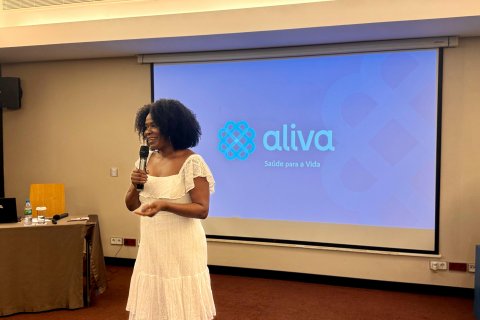The seminar, which began this Monday in Luanda and runs until Friday, is promoted by the United Nations Office on Drugs and Crime, and aims to train 55 technicians, future trainers in the fight against human trafficking.
At the opening session of the second training course for trainers, given by Angolan and Portuguese trainers, the Secretary of State for Human Rights and Citizenship, Ana Celeste Januário, said that organised crime has increasingly sophisticated its 'modus operandi'.
According to the governor, more than 80 cases have been investigated, 20 of which have already been tried, the provinces with the highest incidence being Luanda, Cunene, Cabinda, Zaire and Lunda Norte, all of which border.
Ana Celeste Januário said that the country has shown commitment in combating this phenomenon, with a set of institutional and legislative measures.
"The realization of this training is exactly a demonstration that we are interested in the capacity building of all those involved in the process of identification, investigation, prosecution, trial, which can culminate with the conviction or acquittal of the perpetrators, protection of victims, whether national or foreign," she said.
She stressed that the State's commitment has been increasingly evident, given the number of cases of human trafficking that have been reported.
Despite the challenges, namely budgetary limitations and human resources, the agents of the administration of justice in Angola "have done everything possible to investigate and hold accountable the offenders involved in this criminal activity," continued Ana Celeste Januário.
In addition to this training, which aims to replicate the lessons of the defence and security forces, judicial magistrates and public prosecutors, officials and bailiffs, the authorities also want to "improve protection and assistance services for victims and witnesses, who with the new legal framework will be much more careful," she said.
In statements to the press, Ana Celeste Januário also pointed to cases of exploitation of people for forced labor.
"Within this range is also child labor, children who are used to work, especially on plantations, on farms. We have also had cases of exploitation - a case that has already been tried - of children for begging", she explained.
Ana Celeste Januário stressed that the trainers are representatives of the Portuguese migration authorities, with whom the Government has a "very good" partnership, through support for complaints and the return, above all, of children.
The Secretary of State for Human Rights and Citizenship stressed that "we are in a system of communication and exchange of information with the Portuguese authorities".
According to her, Portuguese airports generally serve as transit for other European countries, such as France, Belgium and the Netherlands, referred to as having been in contact with networks of traffickers involving Angolan victims.
They participate in the training, which is funded by the US embassy and supported by the Portuguese Observatory on Trafficking in Human Beings, judicial magistrates and the Public Prosecutor's Office, Border Guard Police officers, Foreigners' Migration Service, Criminal Investigation Service and members of the Commission against Trafficking in Human Beings, as well as organisations working with the Government on this issue.







